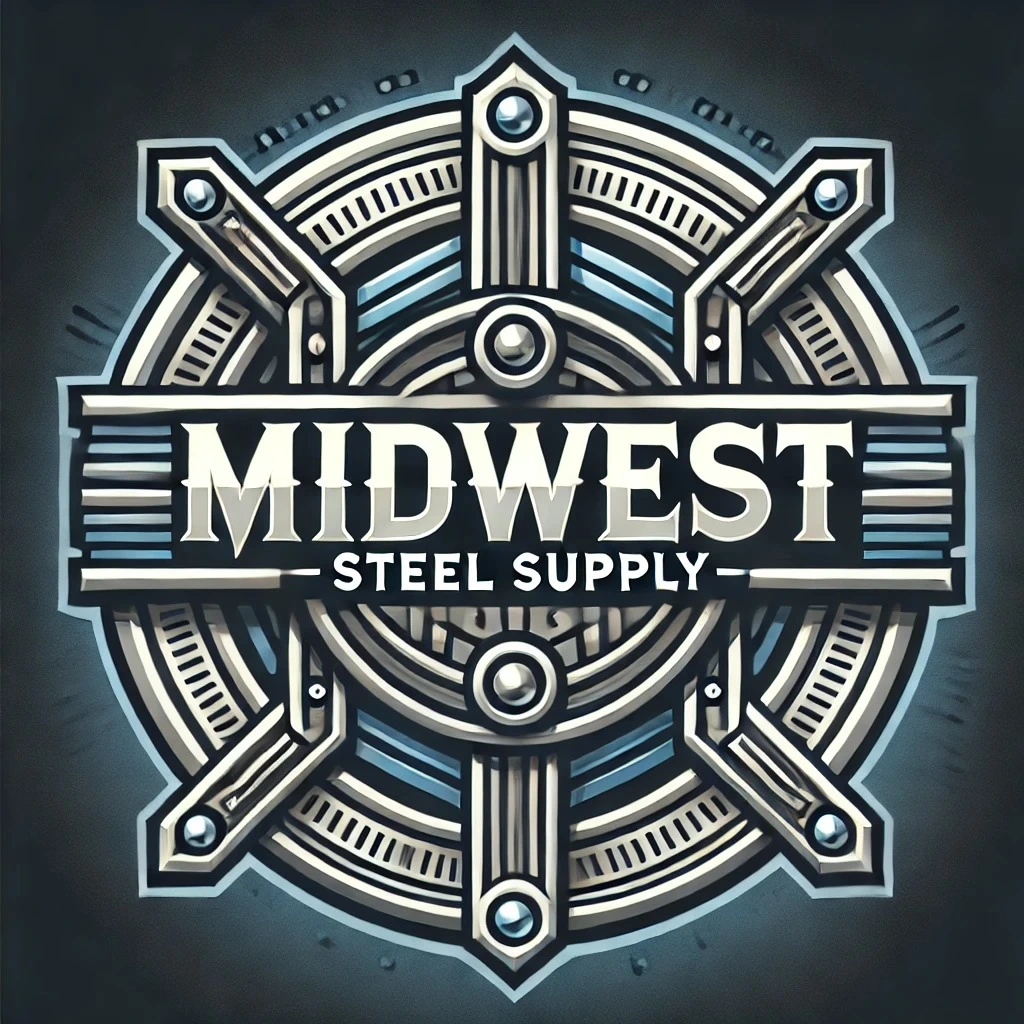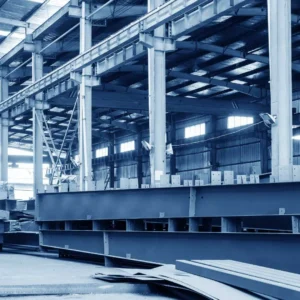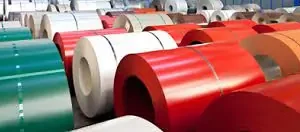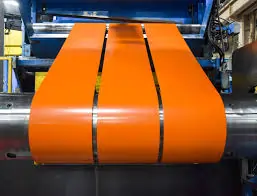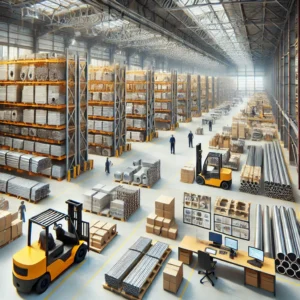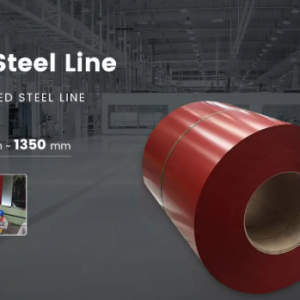v: Suppliers, Uses & Pipe Coil Pricing – August 2025
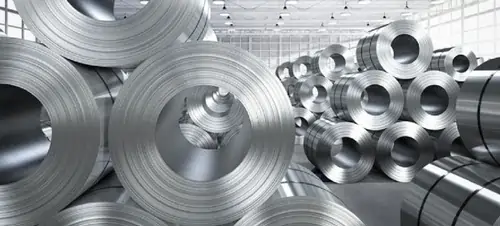
Coils of cold-rolled steel strips are the essentials of contemporary manufacturing and fabrication. Applications of the precision steel products include automotive, construction, furniture, and pipe-making industries among others, and are characterized by strength, consistency, and good surface demands.
In this article, we will learn what are cold-rolled steel strip coils, which industries use them, what they cost nowadays in terms of prices of the pipe coils, and things to consider when choosing a supplier.
What Are Cold-Rolled Steel Strip Coils?
Cold-rolled strip coils are metal sheet material that has undergone rolling below the recrystallization temperature. This surgery makes the steel strong and enhances its surface and the precision of the dimensions of the steel. The outcome is a slimmer, sleeker and easier-to-form item in comparison to hot-rolled steel.
Production of these coils is normally done on the hot-rolled steel which has been pickled to eliminate any scale and then undergoes cold rolling mills. The end product is perfectly suited to finds use where close tolerances, undifferentiated thickness and high mechanical performance are required.
Applications of Cold-Rolled Steel Strip Coils
Cold-rolled strip coils are used across various sectors due to their adaptability and strength. Some of the most common applications include:
-
Automotive panels and components
-
Home appliances (refrigerators, washing machines, ovens)
-
Steel furniture and storage systems
-
Electrical enclosures and cabinets
-
Pipe and tubing for mechanical use
-
Construction materials (studs, channels, tracks)
In pipe-making specifically, narrow-width cold-rolled strip coils are slit and formed into round or rectangular shapes, welded, and then used for plumbing, HVAC systems, industrial pipelines, and structural tubing.
Top Characteristics of Quality Cold-Rolled Strip Coils
When selecting cold-rolled steel strip coils for industrial use, especially for pipe manufacturing, quality is paramount. Some key characteristics to evaluate include:
-
Dimensional accuracy: Uniform thickness across the coil for consistent performance
-
Surface finish: Smooth, clean surface with minimal imperfections
-
Tensile strength and ductility: Suitable for forming and welding
-
Flatness: Essential for coiling, slitting, and shaping into tubes or components
-
Edge condition: Trimmed or deburred edges to prevent accidents or deformation during use
Pipe Coil Pricing as of August 2025
The price of cold-rolled strip coils used in pipe manufacturing varies depending on several factors such as thickness, width, coil grade, and surface treatment. Here’s an overview of average prices this month:
| Product Type | Thickness | Width | Price (USD/ton) | Application |
|---|---|---|---|---|
| Standard Cold-Rolled Strip Coil | 0.5 – 1.2 mm | 600 – 1000 mm | $720 – $860 | General fabrication, small pipes |
| Precision Coil for Tubing | 0.3 – 0.8 mm | 400 – 800 mm | $780 – $900 | Thin-wall pipe, HVAC |
| Annealed CR Strip (Pipe Grade) | 0.25 – 1.0 mm | 500 – 1200 mm | $750 – $880 | For welded tubing and shaping |
These prices may vary by supplier, region, and order volume. Bulk purchases over 50 tons often qualify for discounts or custom delivery terms.
What Influences Pipe Coil Prices?
Several market conditions affect the pricing of cold-rolled steel strip coils for pipe manufacturing:
1. Raw Material Costs
The base cost of hot-rolled steel and zinc (for coated products) plays a major role. Any increase in upstream material prices typically leads to higher coil prices.
2. Coil Thickness and Width
Thinner coils that require precise cold reduction and tighter tolerances are more expensive. Similarly, narrower-width coils used in specialty pipes may also come at a premium due to slitting and edge-trimming requirements.
3. Surface Treatment
Oiling, annealing, or galvanizing adds to the cost. Buyers needing corrosion-resistant or coated coils for outdoor or plumbing use will pay more than those purchasing untreated strip coils.
4. Production Capacity and Lead Times
During periods of high demand (especially Q2 and Q3), mills may increase prices due to limited availability and longer lead times. Conversely, prices may fall in slower seasons like Q4 as suppliers clear inventory.
How to Choose a Reliable Cold-Rolled Steel Strip Coil Supplier
Choosing the right supplier is critical for ensuring quality, consistency, and timely delivery. Whether you’re sourcing coils locally or from overseas, consider the following:
1. Certifications
Ensure the supplier complies with recognized standards such as ISO 9001, ASTM A1008, EN 10130, or JIS G3141. Certified mills offer more reliable metallurgy and traceability.
2. Range of Offerings
A good supplier should provide various grades (e.g., SPCC, DC01, SAE 1008), surface finishes (oiled, dry, galvanized), and coil sizes to suit different industrial needs.
3. Coil Customization
Look for suppliers offering coil slitting, edge trimming, and annealing services. This reduces waste and ensures compatibility with your pipe-forming machines.
4. Delivery Terms
Local suppliers often provide faster lead times and smaller minimum order quantities (as low as 5–10 tons). International suppliers may offer lower unit prices but with higher MOQs and longer delivery times.
5. After-Sales Support
A reliable supplier offers post-sale services like material inspection, coil handling advice, and technical support for application-specific requirements.
Market Outlook for Cold-Rolled Strip Coils
The outlook for the rest of 2025 remains moderately positive. Demand from automotive and construction sectors continues to support pricing, but global economic conditions, raw material trends, and trade regulations may influence volatility.
Buyers are advised to monitor zinc and hot-rolled steel price movements closely, as they often act as leading indicators for cold-rolled steel prices.
Conclusion
Cold-rolled steel strip coils remain a vital raw material for industries requiring precision, strength, and consistency. For pipe manufacturing in particular, choosing the right coil thickness, surface treatment, and supplier is essential to ensure product quality and cost-effectiveness.
As of August 2025, pipe coil prices range between $720 to $900 per ton, depending on coil specifications and supply terms. By sourcing from experienced, certified suppliers and planning purchases in advance, buyers can secure better pricing and maintain consistent production flow.
